Avoid java.util.Date
A java.util.Date represents a moment in UTC. No need to manipulate it as text. Beware: the method Date::toString tells a lie, dynamically applying the JVM’s current default time zone while generating the text.
Instead, use java.time.Instant
First convert from that terrible legacy class to its modern replacement, java.time.Instant. Notice the new conversion methods added to the old classes.
Instant instant = myDate.toInstant() ;
ZonedDateTime
An Instant is also a moment in UTC. To see that same moment through the offset-from-UTC used by the people of a certain region, apply a ZoneId to get a ZonedDateTime object.
ZoneId z = ZoneId.of( "America/Montreal" ) ;
ZonedDateTime zdt = instant.atZone( z ) ;
Be clear: This zdt object and this instant object both represent the same moment, the same point on the timeline. They are different only in the wall-clock time. Imagine someone in Iceland (always in UTC) calling someone in Québec, and they both look up at the clock on their respective walls.
Converting from modern to legacy
If you have a ZonedDateTime object in hand, and you must get a java.util.Date for interoperating with old code not yet updated to java.time, you can convert. Go from an Instant to a Date, by extracting a Instant from your ZonedDateTime object.
Instant instant = zdt.toInstant() ;
java.util.Date date = java.util.Date.from ( instant ) ;
If you need a Calendar rather than Date, the conversion is more direct.
Calendar cal = GregorianCalendar.from( zdt ) ;
About java.time
The java.time framework is built into Java 8 and later. These classes supplant the troublesome old legacy date-time classes such as java.util.Date, Calendar, & SimpleDateFormat.
To learn more, see the Oracle Tutorial. And search Stack Overflow for many examples and explanations. Specification is JSR 310.
The Joda-Time project, now in maintenance mode, advises migration to the java.time classes.
You may exchange java.time objects directly with your database. Use a JDBC driver compliant with JDBC 4.2 or later. No need for strings, no need for java.sql.* classes.
Where to obtain the java.time classes?

